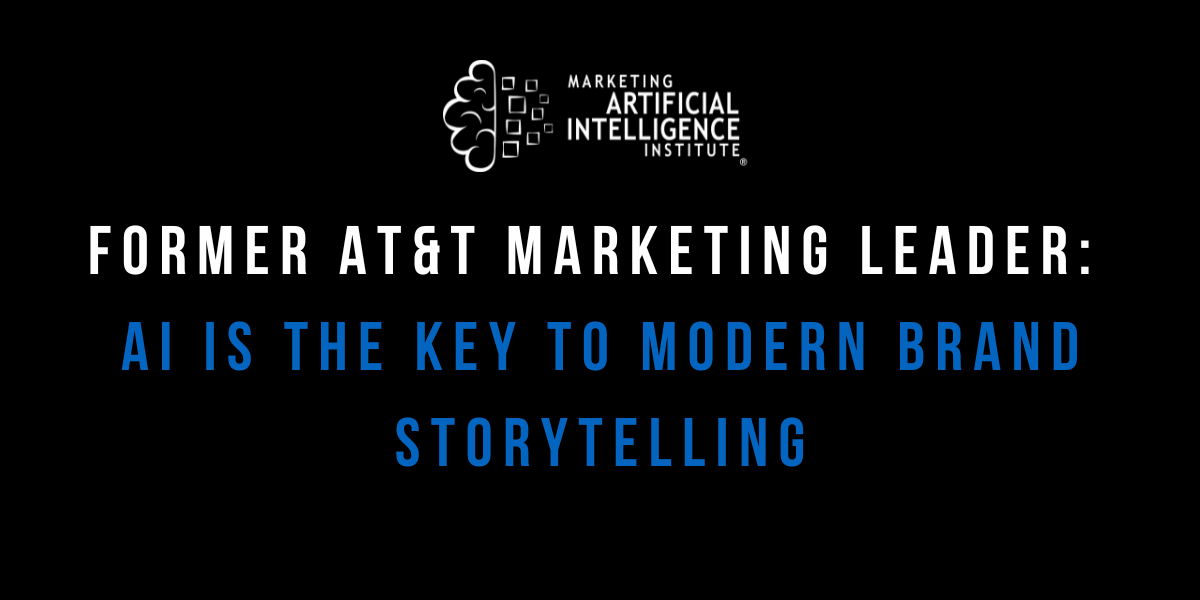Is AI going to replace your job as a marketer?
Not a chance, says Nolan Carleton, an AI-savvy marketing leader who headed up AT&T’s global social media presence until recently. Now, Carleton is an advisory board member at RAD AI, an AI platform that helps brands create audience-first personas.
“Everyone’s like, ‘Is this going to replace my job?’” says Carleton. “No, you just got a promotion. You are now the boss of these tools. This is helping you.”
It’s a lesson she learned well at AT&T, where she leveraged emerging tech like AI to tell powerful brand stories and develop deep connections with audiences on social.
And that experience has given her a wealth of knowledge about how brands and brand marketers can use AI to make an impact on audiences.
I sat down with Carleton to get the inside scoop on how we can all get better with AI in our companies and careers.
Why do brands need to pay attention to AI?
Companies are looking to analyze what they’re doing better. So many leading metrics end up turning into lagging metrics because companies don’t have the intelligence and tools to truly analyze what they’re doing in a way that’s more predictive.
This is literally what AI does. You can feed it data and anticipate what your audience is going to need in the future. To me, that’s the most exciting part. It’s maybe the first time we’ve ever truly had leading metrics in a way where we can confidently say we’re predicting the future and build a strategy or campaign around that.
How can AI create value for brand storytellers and social media marketers?
It’s really hard to tell a constantly evolving brand story at the speed of social. You have to reinvent and re-excite your audience, sometimes multiple times a day. Using these tools as extra team members is a great way to constantly iterate to handle the speed of storytelling.
It’s about both who you want to speak to—and what messages they haven’t heard yet.
For example, at a telecom, a customer might be an individual consumer or a small business or work for an enterprise client. Right there, there are three different audience members that, in the past, we might have treated three different ways. But now, we’re able to unite our messaging (with the help of tools like RAD AI and others) to help us deliver something that’s layered, meaningful, and dynamic.
AI allows us to tell our stories in a much more continuous way that’s so much more authentic and desired by audiences.
What AI use cases should marketers look into first?
You need to leverage these tools to better understand your audience and better formulate your strategy. These are two core use cases initially that you can then use AI to further iterate on as you tell brand stories to your audiences.
You can also use AI to fuel each subsequent campaign by doing analysis and making predictions based on what worked and what didn’t in previous campaigns.
How is AI going to change brand storytelling going forward?
Some of the same principles that are needed for great brand storytelling will still apply. However, going forward with AI, we’re going to have new experiences with brands and get to know them on a different level. But brand storytelling will still be a core way people decide if you’re someone they want to work with, subscribe to, and buy from.
In the age of AI, however, authenticity has never been more important. People see through marketing more clearly than ever. Marketers face an opportunity and a challenge to be their true selves and showcase stories that are actually meaningful and that matter.
So I think brand storytelling and authenticity have never been more important. It’s important for a brand to use AI to better hone and protect that—not to come up with 700 new posts to pummel people with more information.
You can do that. But that’s not actually where you’re going to unlock the true power of AI.
What advice do you have for marketers getting started with AI?
Everyone’s like, “Is this going to replace my job?” No. You just got a promotion. You are now the boss of these tools. It’s all about mindset. This is helping you.
It’s important for training and development to get out there and learn the tools. In a perfect world, every employee should have 5-10% of their time dedicated to innovation, like getting exposed to new technologies and ideas.
You’ll have to spend time with all the incredible AI tools available to you, experiment, and mess up—that’s how you’re going to learn.
It’s also really important to understand the players and influencers in AI, to understand where they’re coming from so you can understand how these tools are progressing.
Mike Kaput
As Chief Content Officer, Mike Kaput uses content marketing, marketing strategy, and marketing technology to grow and scale traffic, leads, and revenue for Marketing AI Institute. Mike is the co-author of Marketing Artificial Intelligence: AI, Marketing and the Future of Business (Matt Holt Books, 2022). See Mike's full bio.



